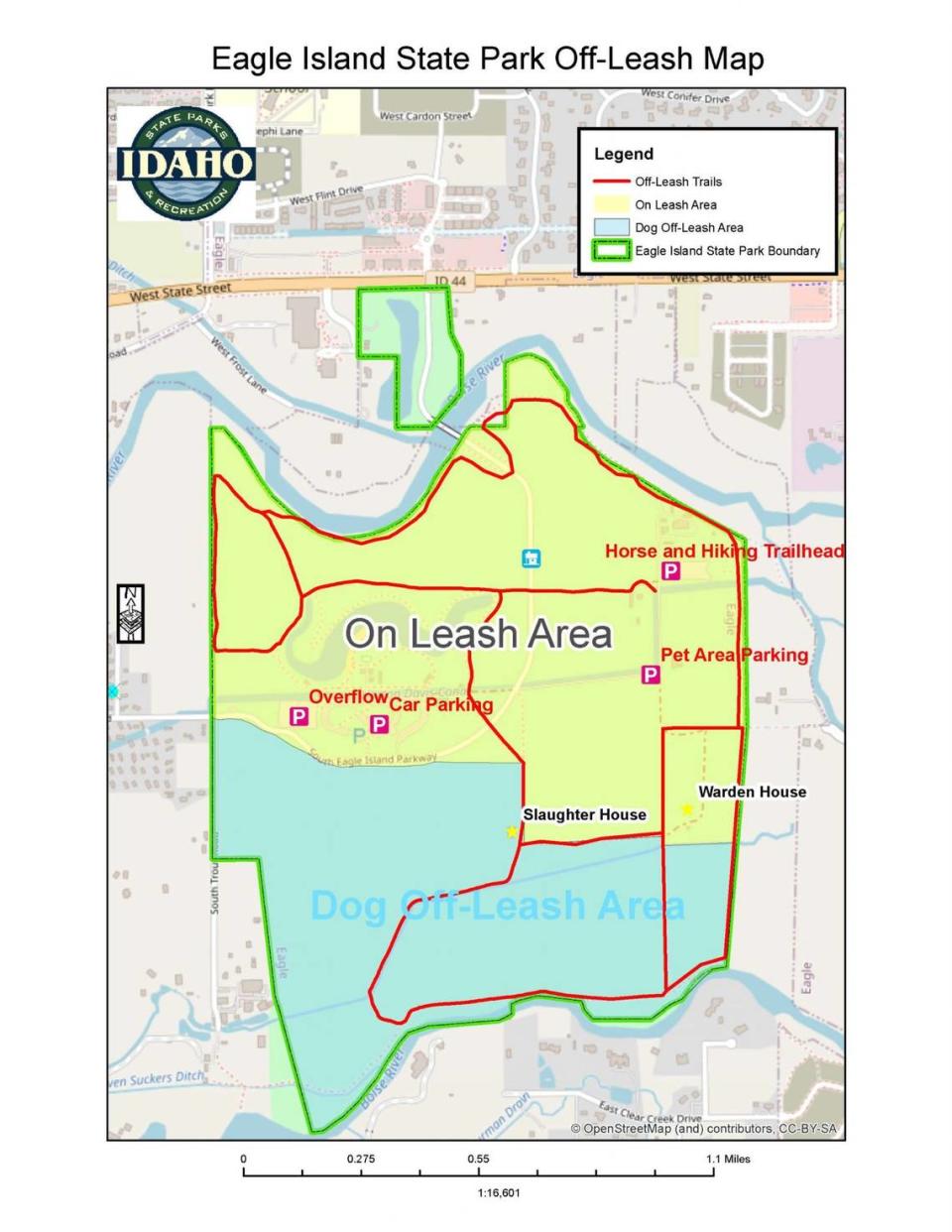Dog leash rules are changing at Boise-area state park; unusual fish found in Lake Lowell
One of Idaho’s most popular state parks will change its leash laws, creating a large off-leash area for dogs while requiring them to be leashed in other areas.
Eagle Island State Park announced the pilot program on Friday. It will create an off-leash area on the southern half on the park, while dog owners will be required to keep pets on leashes in the northern half of the park. Dogs are still banned from the beach and swimming areas due to concerns about water quality.
Idaho Department of Parks and Recreation spokesperson Craig Quintana said in an email that the agency initially proposed requiring dogs to be on-leash in all locations. Park patrons pushed back against that proposal in a May 12 public meeting.
“The idea was unpopular with our 160-plus commenters, as the park is one of the few off-leash areas apart from city-type dog parks, which our patrons seem to dislike,” Quintana said.

Quintana said 212 acres of the park — south of the main road and the Warden House and Slaughter House landmarks — will be off-leash. In addition, the main trails that loop around the park will be off-leash. Off-leash dogs are still required to be under voice control, meaning they respond to recall, and owners must keep their pets from bothering wildlife or other park visitors. Owners must still clean up after off-leash dogs and carry a leash with them.
Dogs must be on-leash in the main area of the park, which includes the visitor center, zip line, waterslide and disc golf course.
Eagle Island has required dogs to be on-leash for years, but Quintana said for most of the last two decades, there has been little enforcement.
“A rise in negative incidents involving dogs and their owners in recent years, when the park has had record human and dog visitation, led to the change,” he said.
Quintana said the new rules will be enforced more stringently, though the department will give people time to adjust to the changes and focus on education first.
Walleye caught at Lake Lowell
Last week, an angler caught a walleye on Lake Lowell — the first time the non-native fish species has ever been reported at the Canyon County lake.
According to an Idaho Department of Fish and Game news release, the angler took photos of the 17-inch walleye before throwing it back. He later reported the catch to the department after reading about another out-of-place walleye caught on Idaho waters. In early May, a walleye was caught at Lake Cascade — the second time one had been caught there in five years.
Fish and Game experts said the catches are concerning. Walleye are not native to Idaho, and as predatory fish they can disrupt the balance of other fish species. That’s why Fish and Game limits walleye stocking to a few Idaho waterways where the fish are unable to escape to other bodies of water.
Art Butts, regional fisheries manager, in the news release said Fish and Game is “definitely concerned” with the walleye, in part because of its effect on Lake Lowell’s largemouth bass and bluegill populations.
“Throughout the West, there are numerous examples of introduced walleye negatively impacting established panfish and largemouth bass fisheries, so this is something we will be monitoring closely,” Butts said.
Fish and Game is asking anglers to kill any walleye caught in waterways where they don’t belong, and to provide the carcasses to the department. Anglers can keep the fillets from their catch.
“We are particularly interested in those carcasses if anglers catch a walleye in Lake Cascade or Lake Lowell,” Butts said. “But because we do not have any established walleye fisheries in the entire Southwest Region – and these fish shouldn’t be present here — we would also like walleye carcasses if anglers happen to catch one in another water body.”
Agency officials said walleye can spread through various waterways, including canals, and impact local game fishing opportunities. In some cases, it’s possible the walleye were transplanted by humans, which is illegal. Fish and Game has said this might be the case with the walleye that have appeared at Lake Cascade. Anyone with information on illegal walleye transplantation can contact the Citizens Against Poaching tipline or call (800) 632-5999.

